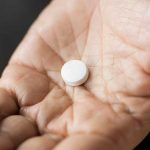- How Does Suboxone Work?
- How Do People Abuse Suboxone?
- Signs Of Suboxone Abuse & Addiction
- Suboxone Addiction Treatment Options
- FAQs
Suboxone is the brand name for a prescription medication that can help treat opioid addiction (also called opioid dependence or opioid use disorder). It reduces opioid cravings and withdrawal symptoms.
Although Suboxone works well when used as prescribed, it can be addictive when abused.
How Does Suboxone Work?
Suboxone consists of two different substances: buprenorphine and naloxone.
Buprenorphine is a partial opioid agonist. That means it attaches to opioid receptors throughout the body and causes mild opioid effects. Naloxone is an opioid antagonist. That means it blocks the effects of opioid drugs.
How Do People Abuse Suboxone?
Some people abuse Suboxone because the buprenorphine in the drug can cause euphoric effects. Others abuse it to ward off the withdrawal symptoms associated with more powerful opioids, such as heroin.
Suboxone abuse occurs when you use Suboxone in a manner not prescribed by a healthcare provider. For example, you might:
- use it more often than prescribed
- use higher doses than prescribed
- use it without a prescription
- mix it with other drugs
- crush the pills and snort them
Signs Of Suboxone Abuse & Addiction
A person who’s abusing Suboxone will likely experience the drug’s side effects, which can include:
- drowsiness
- dizziness
- constipation
- nausea and vomiting
- blurry vision
- sweating
- trouble sleeping
- headache
- irregular heartbeat
Other signs of Suboxone abuse include:
- avoidance of family and friends
- problems at work or school
- loss of motivation
- loss of interest in activities once enjoyed
- doctor shopping (visiting multiple doctors to get multiple Suboxone prescriptions)
- mood swings, anxiety, or irritability
Over time, Suboxone abuse can lead to addiction. Addiction is a serious disease that makes you feel unable to stop using a drug despite negative consequences. The most common symptoms of Suboxone addiction are tolerance and physical dependence.
Tolerance & Dependence
Tolerance occurs when your body becomes used to the effects of Suboxone. You will then need increasingly larger or more frequent doses to feel the desired effects
Physical dependence occurs when your body starts relying on Suboxone to function. If you stop using the drug, you may experience withdrawal symptoms such as:
- fever
- chills
- sweating
- headaches and/or muscle aches
- nausea and vomiting
- trouble concentrating
- anxiety
- depression
- drowsiness
- trouble sleeping
- digestive issues
Suboxone Addiction Treatment Options
If you or a loved one struggles with Suboxone addiction, it’s important to seek professional help at a drug addiction rehab center.
Most rehab centers offer both inpatient and outpatient treatment programs. Inpatient programs offer 24/7 care and are recommended for people with moderate-to-severe addictions. Outpatient programs may work for people with milder addictions and stable, supportive homes.
When you enter a Suboxone treatment program, a team of doctors will work with you to create an effective treatment plan. Depending on your needs, this plan may include services such as:
Medical Detox
As mentioned above, many people who are addicted to Suboxone experience withdrawal symptoms upon quitting the drug. You’re more likely to experience these symptoms if you quit the drug too suddenly.
During medical detox, doctors will help you slowly taper off Suboxone so you can avoid severe withdrawal.
Behavioral Therapy
While medical detox helps you manage the physical side of addiction, behavioral therapy addresses the psychological side.
In particular, your therapist will help you identify your triggers. Triggers are people, places, feelings, or other things that make you want to abuse drugs.
For instance, you might be triggered by a person you used to abuse drugs with or by unpleasant feelings like anxiety and sadness. A trigger can quickly make you relapse (start abusing Suboxone again). That’s why your therapist will teach you healthy ways to cope with triggers, such as:
- deep breathing
- listing all the reasons you stopped abusing Suboxone in the first place
- journaling
- spending time with sober friends
- exercising
Support Groups
As you recover from Suboxone addiction, you might feel like no one understands what you’re going through. At support group meetings, you’ll hear from other people facing similar challenges, which can help you feel less alone. Members can also share coping tips to support each other’s journeys.
Support groups often play an essential role in addiction recovery. That’s why many people continue attending them long after professional treatment ends.
Aftercare Planning
When you complete your treatment program and reenter the world, you’ll face a variety of triggers. That’s why it’s important to have an aftercare plan, which your treatment team can help you create. This plan will include strategies that reduce your risk of relapse, such as:
- individual therapy
- family therapy
- assistance with housing, education, or employment
- regular exercise
- nutritional guidance
To learn more about Suboxone addiction treatment options, please contact Northeast Addictions Treatment Center. Our board-certified providers offer personalized, comprehensive outpatient care to help you or your loved one recover from drug abuse for good.
Frequently Asked Questions
How Long Does Suboxone Stay In Your System?
Suboxone stays in your system for up to 8 days after the last dose. Drug tests can detect Suboxone use for up to 90 days after the last dose. How long Suboxone stays in your system may be affected by your history of substance abuse and doses of Suboxone taken.
To learn more, read How Long Does Suboxone Stay In Your System?
What Is A Suboxone Clinic?
A Suboxone clinic is a place that gives you Suboxone (buprenorphine and naloxone) to help with opioid addiction. Buprenorphine is a mild opioid that reduces opioid cravings and withdrawal symptoms so you can get off of stronger drugs like heroin.
Some Suboxone clinics just give Suboxone, but others offer medication-assisted treatment (MAT), which incorporates various therapies to heal opioid addiction.
Learn more about Suboxone Clinics
How Long Does Suboxone Withdrawal Last?
How long Suboxone withdrawal lasts depends on a number of factors. This includes the length and dosage of Suboxone use as well as your overall health. In general, Suboxone withdrawal can last one to two weeks but may last longer.
To learn more, read How Long Does Suboxone Withdrawal Last?
Sources
Written by
Northeast Addition Editorial Team
©2024 Northeast Addition Center | All Rights Reserved
This page does not provide medical advice.







